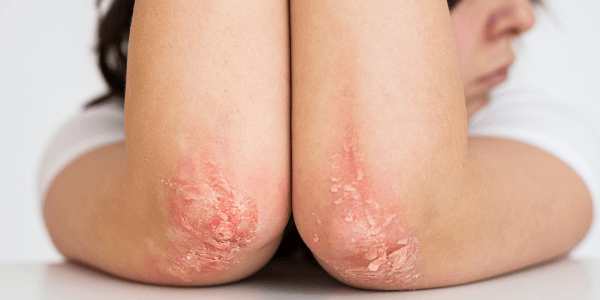A New Natural Remedy For Psoriasis
Psoriasis is a chronic skin condition characterized by the accelerated growth of certain skin cells, leading to the formation of dry, plaquing, and flaky red patches that continually recur. It is often associated with gut problems such as irritable bowel syndrome or inflammatory bowel disease, as well as joint issues. As an autoimmune disease, psoriasis has its roots in gut health, making it crucial to address the underlying factors contributing to this condition. While this new remedy may not guarantee a cure for psoriasis, it shows promise in providing relief and improving symptoms. As always, it is essential to consult with your healthcare professional before incorporating any new treatments.
Understanding Psoriasis
Psoriasis involves an interesting phenomenon within the skin cells. The growth rate of these cells is accelerated, up to ten times faster than normal cells. Consequently, the affected skin becomes dry, scaly, and prone to flaking. Researchers have also found a strong association between psoriasis and gut-related issues. Since most autoimmune diseases originate in the gut, this connection is not surprising. Additionally, individuals with psoriasis commonly experience joint problems, further highlighting the systemic nature of this condition.
An Insight into Psoriasis
To comprehend the potential remedy discussed here, it is important to explore a missing piece of the puzzle found in previous articles. Within the body, certain tissues are composed of proteins, fats, or a combination of proteins and sugars. This combination offers unique functionalities, such as enhanced water retention or lubrication. For instance, the mucosal layer of the colon, responsible for lubricating the digestive tract, is composed of this protein-sugar combination. The same applies to the inner lining of the sinuses, providing necessary moisture. In the case of the skin, a specific protein-sugar structure called GAG (glycosaminoglycan) plays a crucial role in maintaining structural integrity. Remarkably, one-fifth of the sugar present in the skin contributes to the formation of this structure.
The Significance of GAG in Psoriasis
Psoriasis research indicates higher levels of the GAG structure in the urine of affected individuals, suggesting its potential breakdown. Antibodies against this structure have also been detected due to the autoimmune nature of psoriasis. Notably, a similar breakdown of the mucous layer occurs in people with inflammatory bowel disease (IBD), often leading to gut inflammation. The absence of this protective layer compromises the immune system’s primary barrier, making individuals vulnerable to various immune problems, including allergies and autoimmune conditions. The correlation between psoriasis and IBD suggests a common underlying issue involving this protein-sugar structure.
A Promising Remedy for Psoriasis
The new remedy being discussed is a precursor to the GAG structure and is known as N-acetyl glucosamine (NAG). This compound acts as a building block for GAG and has shown potential in improving psoriasis symptoms. NAG offers multiple benefits: it helps regulate the rapid growth of cells responsible for psoriasis, stimulates the production of GAGs to strengthen the lining of the colon and support the skin’s structure, and possesses immunosuppressive properties that calm down the T-cells involved in autoimmune reactions. Moreover, it has anti-inflammatory effects and provides the necessary raw materials for cell repair. NAG has been widely used for leaky gut, bowel issues, and joint problems, and now its application for psoriasis is gaining attention.
Implementing NAG as a Treatment
If you have psoriasis and are considering this remedy, it is recommended to take between 1,000 to 2,000 milligrams or more of NAG over a specified period. However, it is crucial to consult with your healthcare professional for personalized guidance and appropriate dosage recommendations. It is important to note that while NAG shows promising potential, it may not work for everyone, and results may vary.
Conclusion
Psoriasis can be a challenging condition to manage, with its impact reaching beyond the skin. Understanding the underlying factors and exploring potential remedies is crucial for finding relief. While this new remedy, N-acetyl glucosamine (NAG), shows promise in alleviating psoriasis symptoms, it is essential to approach it with caution and seek professional advice. Keep in mind that what works for one individual may not work for another.. By staying informed and working closely with healthcare professionals, individuals with psoriasis can explore various treatment options and find a management plan that suits their unique needs.
DATA:
